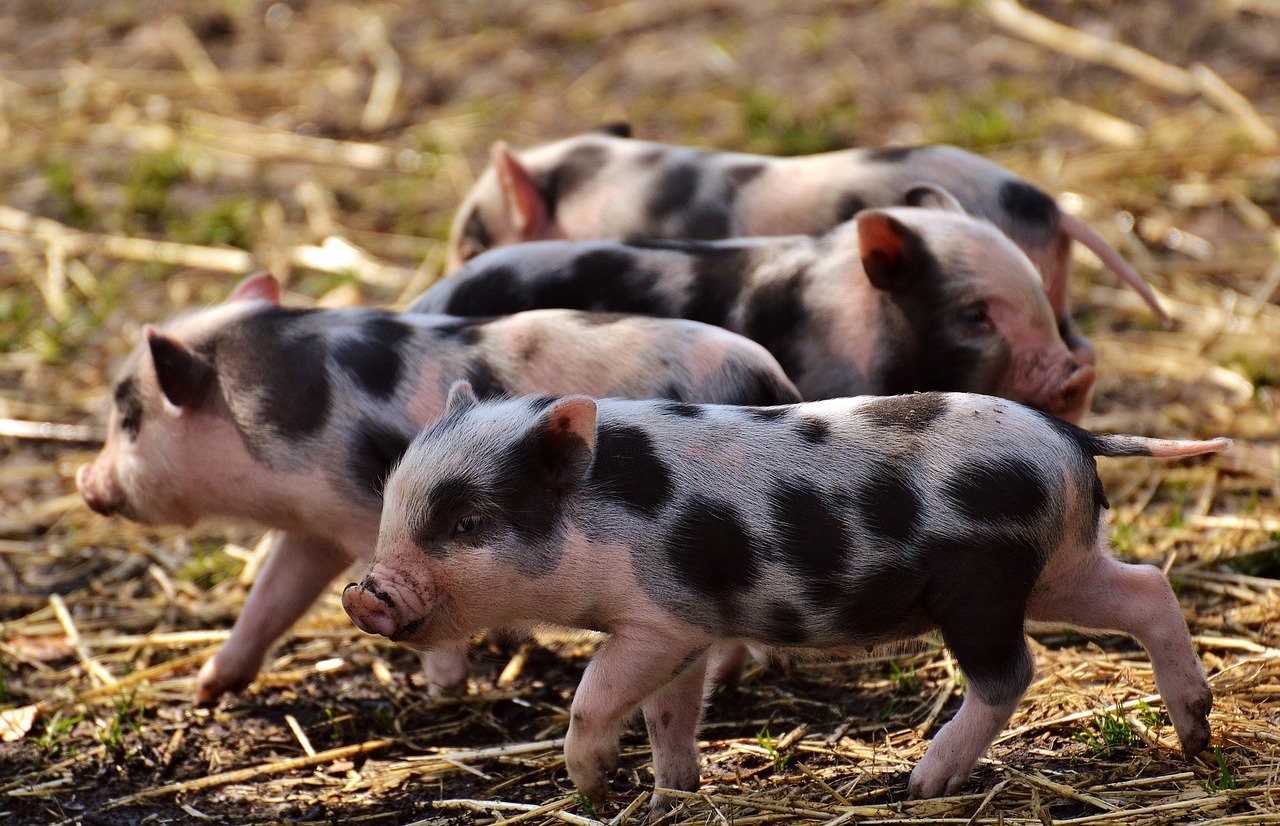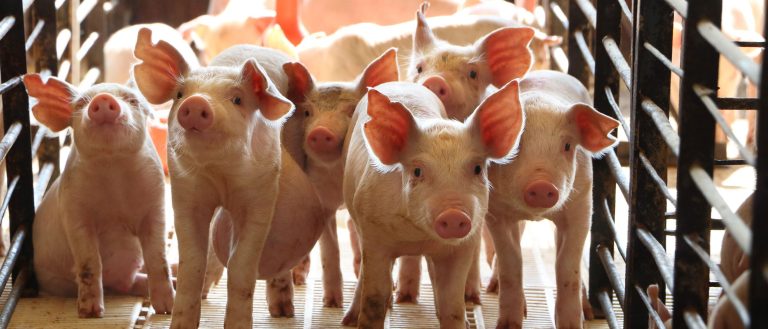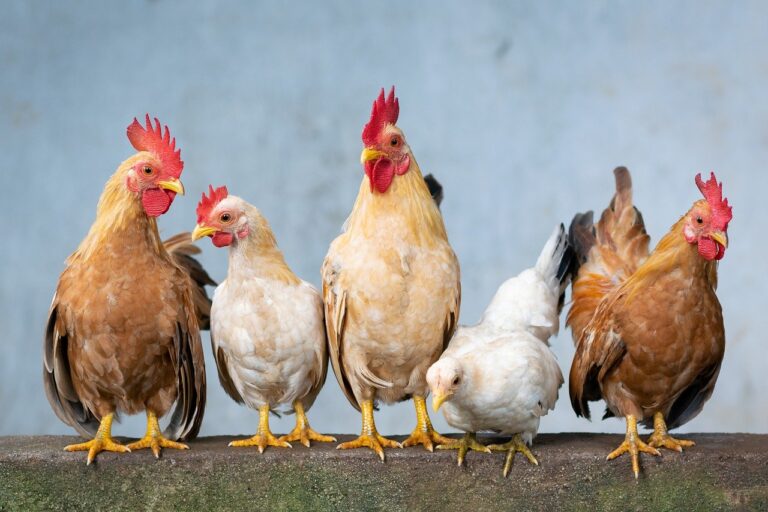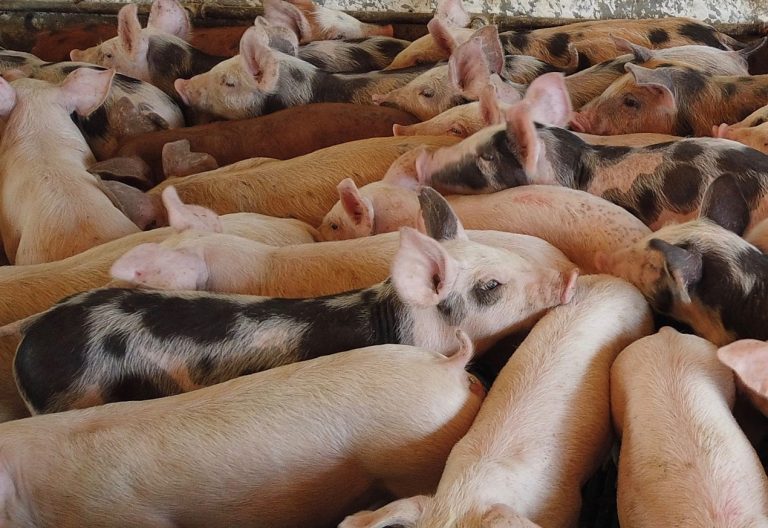ECO Animal Health Group plc (LON:EAH) have provided results for the year ended 31st March 2020.
HIGHLIGHTS
Financials
· Sales 7% higher at £72.1m (2019 restated: £67.3m)
· Gross margin consistent to within 1% (2020 46%, 2019 47%)
· Increased R&D investment results in adjusted EBITDA 33% lower at £8.4m (2019 restated: £12.5m)
· Earnings per share 65% lower at 3.82p (2019 restated: 10.86p)
· Strong cash generation from operations of £5.5m (2019 restated: £7.1m)
· New product development expenditure 17% higher at £10.9m (2019 £9.3m)
· Net cash lower at £9.8m (2019 restated: £16.9m)
Operations
· Demand for Aivlosin® continued to grow strongly, with two new marketing authorisations gained in Europe and Indonesia for breeding chickens and laying chickens, respectively.
· Strong revenue in China in second half as market recovers from worst effects of African Swine Fever (ASF).
· Sales growth and margin recovery in the USA as trade tensions between the USA and China recede.
· Two new poultry vaccine collaborations signed during the year with the Pirbright Institute.
· Transition to remote working and COVID-19 safe working seamless and uninterrupted
· Continued corporate governance improvements.
Marc Loomes, CEO of ECO Animal Health Group plc, commented: “These results reflect a solid recovery in our key markets, particularly in the second half of the year and we have continued our investment at record levels in new product development. We are proud of the Group’s ability to seamlessly adapt to safe working during the Coronavirus pandemic. We are confident that our development programmes will deliver exciting new products which will augment the natural growth from current products and sustain long term growth. For the year ahead we expect to report profitable growth and to perform in line with the market expectations.”
CHAIRMAN’S STATEMENT
FOR THE YEAR ENDED 31 MARCH 2020
This has been a challenging year for our business. The combination of the ASF outbreak in Asia and the USA trade war with China particularly impacted our business in the first half of the year, although this was partly offset by very strong performance in other parts of the world. Performance in the second half of the year saw substantial recovery in revenues from the USA and China. The net result was revenue ahead of the prior year but below our internal budget.
The ECO Board is confident that our R&D portfolio has the potential to deliver major value to our shareholders and so despite the lower than budget top line revenue, we decided to maintain the budgeted increased investment in R&D to keep our portfolio progressing towards commercialisation.
This has resulted in a reduction in our immediate profits in the 2019-20 year, but we are confident this will be more than offset by the growth in long term value of the company through progression of our R&D portfolio.
We have decided not to pay a dividend for the financial year 2019-20 in order to maintain cash reserves at a prudent level, particularly in the light of the economic uncertainty arising from the COVID-19 pandemic, and to build value by continued investment in key R&D programs.
The Board places the highest priority on good corporate governance. We have taken several actions in this important area during the year:
· We appointed new auditors and undertook a major revision of the application of accounting standards across our business and we are now confident that our approach is fully compliant and reflects best practice.
· We recruited a new, highly experienced CFO and have significantly expanded and strengthened the finance team. We have also established an internal audit capability.
We have worked with a major city advisor to thoroughly review our key codes and policies and procedures and to institute training programs where needed.
We made significant changes at Board level during the year including the addition, shortly after the year end, of a new and highly experienced Non-Executive Director. The board now has a good base of experience and skills to lead the Company from the current period of challenge and change through its next stage of development and value-based growth.
We are disappointed that the release of our annual results was delayed due to the scale of work needed for the audit combined with the restrictions in working associated with COVID-19, but believe it was essential to enable completion of an extensive and thorough review of our accounting policies and statements with our new auditors.
This is my first statement as Chairman, having succeeded Richard Wood in August 2019; I am grateful for his leadership and implementing various change initiatives.
I started my report by noting that is has been a challenging year for the Company. I am hugely grateful for how the Board, Executive and wider ECO team have risen to the challenges, delivered a strong performance considering the conditions and have kept motivation and energy to keep ECO moving and developing value. Finally, I sincerely thank our shareholders for their patience and much valued strong support through this period.
Current trading and prospects
Performance in the current financial year ending 31 March 2021 has been strong with the strength seen in both our Chinese and US markets towards the end of the last financial year continuing into the current financial year. In October 2020, we announced that the revenue performance in the first six months of the current financial year was “significantly ahead of management expectations and the prior year”. We also advised that notwithstanding the historical second half weighting to the Group’s revenue, if these revenue trends continued through the second half of the financial year the Board expected that the Group’s full year revenue for the year ending 31 March 2021 would exceed market expectations. This resulted in an upgraded market expectation both for revenue and profitability
On 24 November 2020 we confirmed that strong trading had continued during November and, being mindful of the continuing global uncertainties and four months remaining until the end of the financial year, we were confident of meeting the upgraded market expectations.
On 21 January 2021 we issued a positive trading update, confirming Group revenues and EBITDA were expected to be significantly ahead of market expectations for the year ending 31 March 2021. We noted that the strength in the Chinese market, supported by the rebuilding of pig herds and the high price for pork, continued through the third quarter and the outlook for the final quarter sales continued these strong trading trends.
We look forward to the rest of this financial year and our reporting prospects for 2021 with continuing optimism.
Dr Andrew Jones
Chairman
3 February 2021
CHIEF EXECUTIVE’S REPORT
FOR THE YEAR ENDED 31 MARCH 2020
I am pleased to report that ECO demonstrated considerable fortitude during a particularly challenging year for the Company. The impact of African Swine Fever (ASF) in China which then spread into neighbouring territories, the ongoing tensions between Washington and Beijing and the onset of the COVID-19 pandemic presented significant challenges to the business. The determination, dedication and resilience of our employees combined with the value of our product offering delivered a strong second half performance during the year ended 31 March 2020 with results for the full year being in line with the adjusted market expectations.
Operational Review
Global revenue grew by 7% to £72.1 million illustrating the value of ECO’s global footprint, with sales generated in more than seventy countries, in the face of significant headwinds, and the commoditised nature of pork and poultry production.
Sales of Aivlosin®, our patented antimicrobial which is used under veterinary prescription for the treatment of economically important diseases in pigs and poultry, increased by 16%, accounting for 84% of total revenue.
Sales of the smaller Ecomectin® anti-parasitic range at £4 million, increased by 7% and represented 6% of the Group revenue.
Sales of all other products were £7.5 million (2019 – £11.4 million) and mainly comprised a range of supportive antimicrobial products for pigs in China.
The China revenue from external customers declined by 17% reflecting a year of two remarkably different periods. In December 2019, we reported for the six month period ended 30 September 2019 (“Interims”) that the well-publicised effects of the ASF outbreak in China provided significant headwinds in our largest market whist noting encouraging signs for the second half of the financial year with a reported reduction in the rate of new ASF outbreaks in China and an indication of some restocking of pig herds by certain high value producers, including some of our customers. These early encouraging signs were supported by rapidly rising pork prices resulting in a strong second half (“H2”) with revenue ahead of the prior year. Our Chinese subsidiary has focused on the respiratory health of replacement breeding sows whose numbers at the major producers have increased rapidly in response to the pork shortage and very high pork prices. The high value of these sows and their offspring has enabled the subsidiary to secure the business of an increasing number of key accounts.
Revenue in Japan rose by 16%, driven again by growth in the swine business to large producers.
North American revenue from external customers increased by 10% reflecting the growing importance of Aivlosin®’s low yet effective dose rate and short treatment duration in medication protocols as veterinarians and producers adhere to responsible use of antimicrobial guidelines.
In the USA, revenue was 22% higher, reflecting a strong H2 performance. The first half had been marred by China-USA trade tensions which had left US pig producers with limited ability to capitalise on the anticipated export market created by the pork shortage in China which led to overproduction of pigs with depressed prices and margins. The strong H2 was marked by better pork prices linked to global supply shortages brought about by ASF in China, an increase in commercial activities by a strengthened sales and technical team during the autumn and winter months armed with adjusted customer incentive programmes for the year 2020. Canadian revenue fell by 11% largely as a result of restrictions imposed by China on Canadian pork imports. These restrictions were lifted but the poor first half performance was not fully recovered in the second half of the financial period.
Latin America revenue rose strongly by 17%, with the Brazilian and the Mexican subsidiaries up 80% and 23% respectively, reflecting the benefits of ECO’s key account management approach and the development of strong partnerships with local third party distributors in these two key markets. Argentina delivered a record result and important tenders were again won in Cuba although these results were tempered by challenging market conditions in Central America and other Latin American countries such as Columbia and Peru.
In South and Southeast Asia, revenue was 75% higher. Thailand was the best performing market with Aivlosin® on all major account approved product lists resulting in both swine and poultry revenue growth. New business was won in Malaysia resulting in almost a doubling of sales over the prior year. These two outstanding performances were moderated by extremely challenging conditions in India, where the poultry market contracted significantly amidst a transition to a more consolidated integrated market with higher quality standards and away from an informal market characterised by small producers, and in Vietnam and The Philippines, both affected by ASF.
European revenue declined by 4%. Aivlosin® sales were strong in key markets such as Spain and Poland although overall revenue into continental markets fell slightly.
Sales in the United Kingdom, which represent just over 2% of global revenue, rose 25%, across all products, led by strong Aivlosin® sales during an outbreak of swine dysentery.
In Russia, an increasingly active exporter of meat, revenue was affected by disease outbreaks in swine and in poultry although market share gains were made with the most important customers. The previously reported delays to the inspection of manufacturing facilities and laboratories by the Russian authorities have been resolved.
Sales in the Rest of the World declined by half a million pounds to £1.2million reflecting in equal parts a declining presence in South Africa and softer demand in Middle East and North Africa.
Product Research and Development
The Company’s early stage research and proof of concept development activities are outsourced to leading research institutions and universities with later stage full development work managed in-house. This model mitigates the significant costs associated with in-house laboratories and owned research functions.
Product Approvals
Two Aivlosin® for poultry marketing authorisations were received. The first, from the European Medicines Agency (EMA), allowed ECO to market Aivlosin® 625 mg/g Water Soluble Granules in Europe for the treatment and metaphylaxis (control) of respiratory infections caused by Mycoplasma gallisepticum in breeding chickens, whilst the second allows the use of the same Aivlosin® formulation in chickens laying eggs for human consumption, with a zero day drug withdrawal period for eggs in Indonesia the most important market in Southeast Asia for laying birds. The Aivlosin® approval for high value breeding chickens will, like the commercial layer indication, be rolled out to the multi-million dollar international poultry markets.
Pipeline
ECO is building a significant product portfolio pipeline with a mix of well-established concepts and novel, highly competitive technologies, and approaches with the emphasis on vaccines and other new products to complement our existing antimicrobial business. The pipeline is focused on providing solutions to respiratory and gastrointestinal (gut) diseases of major economic importance in pigs and poultry. Two worldwide exclusive research partnerships with The Pirbright Institute, United Kingdom were signed in September 2019 to develop novel poultry vaccines against respiratory and systemic viral diseases in commercial chicken flocks globally. Several additional new proprietary concepts and third-party opportunities entered ECO’s product development screening programme during the year. New product development expenditure in the year rose by 17% to £10.9 million (2019: £9.3 million) and is being continued at a significant level in 2020/21. This will ensure that we have several mid and late stage projects able to deliver early revenues from 2022/23.
Covid-19 Impact
ECO transitioned smoothly to home working during the final weeks of the year building on the new ways of communicating with customers developed during the ASF outbreak and without losses of efficiency. Outsourced manufacturing and the Group’s supply chain operated smoothly through the year end.
Brexit
ECO’s EU marketing authorisations have been transferred to the European subsidiary, ECO Animal Health Europe Limited registered in Dublin, Republic of Ireland and all our Brexit contingency plans are in place. The financial and operational impact of Brexit is expected to be minimal, particularly given the recently announced trade deal between the UK and the EU. ECO’s sales to the EU (excluding the UK) represented 8% of total revenue for the year.
People
I would like to thank all our employees for their extraordinary levels of energy, engagement, and professionalism in addressing the challenges of the year. Individually and collectively their ability to innovate and to adapt combined with sheer hard work underpins these results and ECO’s prospects.
Marc Loomes
Chief Executive Officer
3 February 2021
FINANCE DIRECTOR’S REPORT
FOR THE YEAR ENDED 31 MARCH 2020
Introduction
I was delighted to join ECO in September 2019 as Group Finance Director.
It has been a significant year of change for the Group. In addition to the many commercial challenges faced by the Group during the year such as African Swine Fever in China, USA-China trade tensions and, in the latter part of the financial period, the advent of the COVID-19 pandemic, we have continued our journey of improvements in governance. These improvements have been previously signalled and were introduced in last year’s Annual Report. During the year ended 31 March 2020 we appointed new external auditors (this is their first audit report on ECO), we established a new internal audit function, overhauled much of the control environment around the group – in particular around financial controls and processes and, with the assistance of external professional advisors, moved the governance agenda forward, particularly in relation to the group leadership and the Board. The financial control environment has been significantly strengthened – specifically in relation to custodianship of assets, banking and cash. These actions protect the business and individuals working within the business with customary segregation of duties and multiple authorisations. From a finance and governance point of view we are now well positioned to support the strong growth the Group is experiencing and driving.
Prior Year Restatements
One of the results of the changes described in my introductory comments was to consider the accounting policies adopted by the Group previously and to review the implementation of IFRS across the Group. In a number of areas, technical non – conformance with IFRS was identified and in other areas, interpretation of the relevant standard was considered to have been incorrect. As a result, in our interim report, released in December 2019, we published extensive prior year restatements, describing the nature of the adjustments and their financial effect. Those restatements form part of these Financial Statements and have been audited for the first time. The principles of the prior year restatements are as previously described and fall into the following categories:
· Accounting for revenue in accordance with IFRS15 – revenue recognition and accounting for sales discounts (note 3.1)
· Accounting for expenditure on research and development – in particular the portion of expenditure which should be capitalised under IAS38 (note 3.2)
· Accounting for our Joint Arrangements in the USA and Canada under IFRS11 (note 3.3)
· Accounting for bonus payments on an accruals basis (note 3.4)
· Accounting for leases under IFRS16 (note 3.5)
· Accounting for foreign exchange (note 3.6)
· Accounting for Free Goods Incentive (note 3.7)
· Accounting for share based payments (note 3.8 and 3.9(Company only))
The notes to these accounts describe these changes in detail.
Audit
As stated earlier this was the first audit of the group performed by BDO. This also coincided with a period of remote working and lock-down amidst COVID-19 affecting the world. This added some distinct challenges to the audit task.
The first and most obvious challenge was that, except in China where COVID-19 was ahead of the initial European and US impact, the auditors were unable to physically attend our year end stock takes. Attendance at stock takes is a fundamental audit test. The Institute of Chartered Accountants in England and Wales suggests that auditors seek alternative means of satisfying themselves in the event of being unable to attend stock takes. Notwithstanding that the Group’s stock is held at third party warehouses (and third party certification of quantities on hand was provided by these warehouses) and there was no indication that the valuation of inventory was incorrect, the audit opinion is limited in scope regarding inventory. The stock take was attended in China and therefore this limitation in scope qualification is in respect of stock held elsewhere in the group and amounted to 82% of the stock value (£14 million).
The effect of the prior year restatements, described above, was to reduce profitability in the year ended 31 March 2019. Accordingly, our new auditors considered that the materiality threshold to which our previous auditors worked (£757,000) was no longer appropriate and took a decision to reduce it. As a result, BDO have performed a re-audit of the statement of financial position at 31 March 2019. A significant balance within this statement of financial position is the net book value of Intangible Assets representing the accumulated capitalised and amortised costs historically incurred by the Group. These costs are in the main related to the development and commercialisation of Aivlosin® and Ecomectin®, the Group’s main families of marketing authorisations. The capitalised net book value of these intangible assets at 31 March 2020 was £22.9 million and the revenue during the year ended 31 March 2020 derived from Aivlosin® and Ecomectin® was £64.6 million; the net book value of these assets was therefore only about one third of the annual revenue derived from their usage. However, in order to verify the original costs within the net book value of these assets our auditors required evidence of costs dating back to 2004. The Group retains invoices and records from third parties for seven years in line with statutory practice but, unfortunately, we were unable to provide some support for the audit sampling requests prior to this. In addition, for expediency, it was decided that provision of evidence to support the audit would be confined to the trading periods being audited. As a result, BDO has further limited the scope of their audit opinion in respect of Intangible assets. The net book value at 31 March 2020 relating to costs capitalised more than seven years previously (and therefore the element of audit sampling not able to be supported by physical invoices) was £8.4 million.
Trading
During the year ended 31 March 2020, ECO recorded its highest second half revenue weighting to date being 60% of the full year revenue. This compares to an equivalent second half weighting in the year ended 31 March 2019 of 55%. Year on year the second half of this financial year was 18% greater than the prior year reversing a shortfall at the half year and resulting in an overall revenue improvement for the year ended 31 March 2020 of 7% compared with the year ended 31 March 2019. The primary driver of this strong second half performance was a recovery in China (from the effects of African Swine Fever, described in our Chief Executive’s report) and strong performance in the USA. A geographical analysis of revenue is as follows:
| Revenue Summary | Year ended 31 March | |||||
| 2020 | 2019 | % change | ||||
| (£’m) | (£’m) | 2019 to 2020 | ||||
| Restated | ||||||
| China and Japan | 23.1 | 26.8 | -14% | |||
| North America (USA and Canada) | 11.6 | 10.5 | 10% | |||
| South and South East Asia | 14.2 | 8.1 | 75% | |||
| Latin America | 12.6 | 10.8 | 17% | |||
| Europe | 7.6 | 7.9 | -4% | |||
| Rest of World and UK | 3 | 3.2 | -6% | |||
| 72.1 | 67.3 | 7% |
Revenue from China in the second half of the year was £14.4 million compared to the equivalent six months ended 31 March 2019 of £12.4 million underlining the recovery in that market. Trade with India (included within Asia in the above analysis) softened towards the end of the financial year, however the rest of the region including Indonesia, Malaysia, Thailand and the Philippines continued the trend set in the first half of the year resulting a year on year increase in Asia of 75% becoming the Group’s second largest segment this year. The thawing in trade tensions between the USA and China resulting in strengthening swine market conditions in the second half of the year is also evident in the second half revenue from the USA of £5.8 million (2019 – £3.6 million). Latin America, and in particular Brazil, continued to benefit from pig exports to China, resulting in buoyant commodity prices and a consequent strong market for the Group’s products. Europe benefitted from pork exports to China, in particular from Spain.
Gross margins at 46% in the year ended 31 March 2020 (2019: 47%) were reasonably consistent and represented a strong recovery from poor first half margins (43%) – this being associated in the main with improvements in the USA.
Overheads, at £28.3million were significantly greater in the year ended 31 March 2020 compared with the year ended 31 March 2019 (£21.8million). The greatest contributors to this increase were expenditure on Research and Development, employment costs and foreign exchange movements. Expensed research and development expenditure increased from £5.8 million in the year ended 31 March 2019 to £8.8 million in the year ended 31 March 2020. This increase of £3.0 million reflects the nature of the earlier stage projects being undertaken (and therefore expensed to the income statement) particularly in respect of vaccine development as well as an overall increase of 18% in the cash expenditure in R&D. Expensed employment costs increased from £9 million in the year ended 31 March 2019 to £10 million in the year ended 31 March 2020. Whilst the staff numbers reduced from an average of 217 in 2019 to 204 in 2020, the amount of capitalised in house labour in research and development also fell resulting in the greater charge to the income statement. The foreign exchange loss in 2020 amounted to £0.5 million whereas a gain of £0.7 million was recorded in 2019.
Total cash expenditure on research and development in the year was £10.9 million (2019: £9.3 million). This expenditure was expensed to the extent that it related to projects at the research phase and capitalised in accordance with IAS38 to the extent that it related to projects in the later stage (development phase) of the project life-cycle. The total cash expenditure in R&D can be analysed as follows:
| Year ended 31 March | ||
| 2020 £000’s | 2019 £000’s (Restated) | |
| Research expenditure – included in administrative expenses | 8,775 | 5,868 |
| Development expenditure – capitalised in intangible assets | 2,115 | 3,477 |
| Total cash expenditure (excluding employment costs) | 10,890 | 9,345 |
EBITDA is considered by the Board and the Group leadership team to represent a key performance measure; the removal of amortisation (which is a significant annual non-cash charge to profits) and depreciation provides a good indication of the underlying trading performance of the business. The EBITDA margin (EBITDA expressed as a percentage of revenue in the period) was 11.6% in the year ended 31 March 2020 compared with 18.5% in the year ended 31 March 2019. This reduction arises in part from the small reduction in gross margin (1%) as well as the increased investment in R&D, referred to previously.
The Group continues to benefit from a low effective tax rate. In the year ended 31 March 2020 the effective tax rate for the Group was 19.8% (2019 – 12.3%). The historical low effective tax rate is largely a result of the significant R&D investment on which the Group receives tax credits. These tax credits continue but in 2020 a prudent assessment has been taken of the likely taxes due in foreign jurisdictions carrying a higher tax rate than the UK and no account has been taken of the likely benefit that will accrue from “patent box claims”. Historic tax losses result in zero tax payable in the year. Discussions with HMRC will commence concerning the tax treatment of the prior year restatements; the accounting treatment to expense previously capitalised R&D investment may result in a reduction in prior year taxable profits. No benefit of this tax re-computation has been recognised in this Annual Report.
The consolidated cash position in the Group has declined from £16.9 million at 31 March 2019 to £11.9 million at 31 March 2020. This consolidated cash position at 31 March 2020 includes £5.3 million (2019 – £4.0 million) which is held in the Group’s subsidiary in China. A portion of this cash is repatriated from China once per annum by dividend declaration; the Group’s share which is received in the UK is 51%.
The cash generated from operations was 23% lower in the year ended 31 March 2020 at £5.5 million (2019 – £7.1 million) which fell less than the lower profitability due to better working capital management. From operating cash, dividends of £8.4 million were paid in September 2019 and investment of £2.1 million in capitalised development costs, together with income tax paid of £1.1 million, acquisitions of tangible fixed assets (£0.8 million) and other sundry cash movements (£0.2 million) resulted in an overall net cash draw down of £7.1 million and the lower cash balance at 31 March 2020.
Post balance sheet event
There have been no material post balance sheet events to note.










































